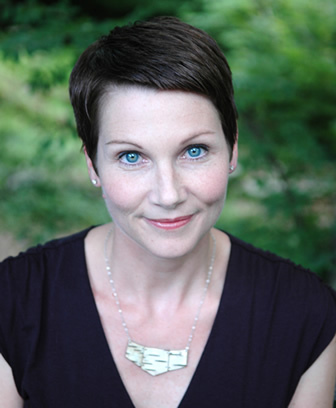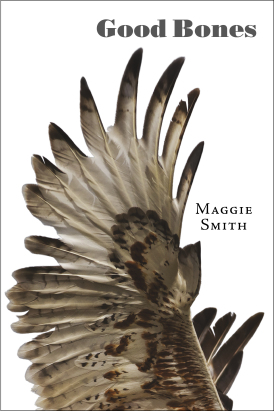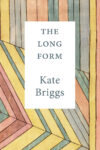There’s something within Maggie Smith’s new collection, Good Bones (Tupelo Press), something shimmering, something raked up from dirt and still shining, that makes me hopeful. Hope, the word itself, is used so much today, and I think often that I forget that hope cannot exist without its opposite—cynicism, perhaps—and has no purpose unless there is pain in the world. Pain of self, pain of others. What I mean is that hope exists only when reality does. And Maggie Smith knows this. Good Bones is hopeful, but not hopeful for hope’s sake. It’s hopeful for this world’s sake. For us, for her children, for trees and towns and the people climbing such trees and living in such towns. And the poems themselves—these tightly-wound, gorgeous, persistent, and curious elegies and questions and celebrations—serve as vehicles for the exploring, loving self. There’s an intimacy to Good Bones that feels well-worn, like a barstool, a baseball glove. When you are inside these poems, there is nowhere else to be, because, like anything specific that grazes the subject of the universal, you’re everywhere at once. Maggie and I talked about her new collection, the surprise of children, the poetry of place, and much more. It’s all below.

Devin Kelly: I was re-reading Good Bones on the subway commute to work this morning while I was listening to the new album by The National—don’t know if you’re a fan. But it was a strange and beautiful combination and I cried a little bit.
Maggie Smith: Huge fan. “Bloodbuzz Ohio” is obviously one of my favorites. I love that the poems and the music moved you in a public space like that.
That’s my favorite, favorite, favorite song of theirs. Their music can be a little fatalistic, and though death creeps into almost all of this book of yours, there’s forever a tinge of optimism, especially when your children make their appearances.
Yes—it’s a more hopeful book, I think, than my last one. It’s funny to say that, given everything that’s happening in the world, and particularly in the US, right now. But it was important to me that the book begin and end in a hopeful place, and my daughter is all over both of those poems. Her words sort of bookend the collection.
They do! The first poem and the last both have your daughter’s words in them.
Yes, “Weep Up” and “Rain, New Year’s Eve” are two of several poems in the book that quote her.
And her voice is truly a hopeful thing. I guess not just because of her youth, but these intertwining elements of mistake and surprise, perhaps. I used to teach middle schoolers, and every time your daughter’s words entered a poem, I thought of them, and how much fun it was to teach them and encounter these little delightful surprises every day.
Part of what I find hopeful in her words is the surprise, and it works both ways. Children are surprised by the world because they don’t have so many expectations yet, and it’s fascinating to see them seeing it—if that makes sense. My daughter likening the rain to a broken piano surprised me, and gave me so much pleasure, because it wasn’t something I’d ever considered. What I find hopeful in this is that the world is inexhaustible. If we keep looking, listening, feeling—we’ll discover things we didn’t think of before.
Yes, that’s beautiful. Your poem, “Heart,” is another assertion of this. That in times of pain or loss or struggle, it’s important to look toward children, because there’s something there. Maybe honesty? Maybe an unfiltered, unflinching stare?
Yes, and an absence of cynicism. With kids there’s no irony, no detachment, no coolness—just experience and feeling. I find that so refreshing.
I do too. It’s one of the reasons it’s hard for me to stop teaching. But I don’t want to talk just about children (though I could!). I think that comment about cynicism is important because some poems in Good Bones seems to straddle a ridge between nostalgia and reality. I’m thinking of that line: “You might have dreamt it except for // the details.”
Yes, from “This Town,” which is a poem I wrote thinking about my hometown and how it’s changed over the years—how people growing there now can’t have some of the experiences I had there. I’ve lived in the same general area my whole life, and so I’m kind of obsessed with the idea of home. It’s a love/hate relationship—you’re rooted but you dream about leaving; you dream about leaving but deep down you want to stay. And can we remember a place without coloring it with what we know now? I’ve been writing my way through these issues in many of the poems in this book. I don’t think I’ll ever stop writing Ohio poems. It’s who I am.
I feel the same way about New York City. I’ve been here almost ten years and it’s a strange thing to, as you allude to, remember it while you’re also living in it. I think that breeds obsession.
Yes! I joke that I’m nostalgic about a moment when I’m still in it. But I think part of that is the writer’s brain—we’re always collecting experience, using what’s around us. I think of the Natasha Trethewey poem “Elegy” where she admits mid-poem to memorizing the details of that fishing trip with her father so that she can use them later in his elegy, which is that very poem.
Yes. I love how she writes “You must remember…” in that poem. And that phrase in general. The mind is a faulty thing, and I think you say it so well—we’re always collecting things to use, always collecting. Unrelated, but did you know that during the Civil War, nostalgia was a diagnosable medical condition, and that soldiers actually—well, technically—died from it?
Now THERE’S a poem in the making!
It’s such a strange little fact. But you think of how centered place must’ve been in those people’s lives, and how a journey that seems small to us now—maybe a few hundred miles—must’ve been epic.
I think nostalgia is a chronic condition, but one we can live with. And yes! How many of those young men had never left their parents’ homes before and found themselves in such horror so far from home? It’s gutting to think about. I taught for a year at Gettysburg College and am still struggling to write poems about the experience of living there.
Ah, wow. That’s such a starkly beautiful place. And place obviously matters to you. How do you consider place in your poems? Does place inform your poetry? Do you write to inform your understanding of a place? Both? More? Too many questions?
Ha! It’s immensely important to me. When I first started writing poems, I thought of “setting” as something in stories and novels, not poems. But almost all of my poems, if I look closely at them, are grounded in a place. And more often than not, that place is Ohio. The trees, the sky, the view from my window, the birds in my backyard—the images I “collect” are here. I do think that writing about Ohio has helped clarify for me my own feelings about being “at home” here. I think about a poem like “Accidental Pastoral,” which ends on an image that began as straight description—the clouds were flat-bottomed, so they looked like they were resting on top of something. In revision, I saw the metaphor come through—the clouds looked like they were pressing down on something, straining against the thing that was holding them up. It’s a poem about the love/hate struggle of being rooted in a place. We push against the thing that holds us. Thinking about it this way, place is parental.
Ah, that’s beautiful. How we struggle with it and it with us and so much else. There’s so much to parse out here. But I love that poem, “Accidental Pastoral.” I thought of William Least Heat-Moon’s book Blue Highways while reading it. Do you thinking writing about place makes you feel more at home in that place? Does it challenge your conception of what home is, or could be?
I was thinking about this yesterday, driving out to teach at my undergrad alma mater. (Talk about nostalgia-inducing!) I think writing about place can be strange-making. It forces you to unpack things. But I also think there’s something to be said for having fewer variables in life. Living in the same place my whole life—a big constant—makes me sensitive to changes here. I also think it’s made me sensitive to changes in myself. More constants and fewer variables makes change easier to see. Does that make sense? The trade-off, of course, is that most of my adventures have been interior.
It does! You know, I kept screen-shotting some of your poems and sending them to my mom, who bounced around after her divorce, but now lives in Annapolis, Maryland as an inn-keeper. And a lot of what you’re saying here and what your poems do helped articulate many of these really beautiful changes I’ve noticed in her since she’s taken root in a new place.
I also think it has to do with intimacy. When you know someone very well, you pick up on their smallest vibrations. I feel the same about place.
Yes, and I also feel the same about poems, too. They’re so intimate that we become very aware of the little changes within them, perhaps.
Oh, I love that. Yes, absolutely.
A lot of your book felt like little talismans. Like an act of gardening, planting seeds.
I love the idea of talismans. Since I was a kid, whenever I see a hawk, I think it’s good luck. Hence the hawk in the series of poems in Good Bones.
Ha, I love that. I am the same way with some things. Mostly certain things when struck by certain light. But yes, it’s hard to place exactly, but there’s this almost-giddiness throughout the book that I truly loved. Maybe it was, simply, love-of-world.
Ah, love-of-world! Yes! And a mother’s love, meaning it’s unconditional. The world can behave badly and still be loved.
Yes! I am not a mother or father, but I think of this often. This world, maybe must be loved, because it is all we have. And that must be like children, perhaps? I don’t want to overreach here because I have no kids.
Absolutely! Our families love us even when we are unlovable.
Are you a fan of photography? The motherhood present within your work reminded me of Sally Mann’s portraits of her children.
I’m a big fan of her work—thank you! It’s not idealized.
No, it’s not. It’s precocious and joy-filled while not always being joyful. Which is how I sort of came to view your work as I read it. That poem, “Let’s Not Begin,” and how it wants so bad to love and then doesn’t, but then does, and the ending — “and, and, and” — it captures that sensibility.
That poem sort of broke my heart to write—or, rather, the experience with my daughter broke my heart. How do we comfort without placating or even outright lying? It’s a struggle.
It is. I really don’t know the answer to that. And not to mention how do we comfort ourselves while we attempt to comfort others? That’s what scares me the most about the prospect of future parenting. And also this moment politically and this world as it stands.
Yes! I’m always self-soothing when I’m soothing my kids. A lot of times it’s not what you say but how you say it.
Isn’t that the truth. How do you feel your writing change as you, as you sort of mentioned, stay rooted but become, perhaps, more aware of smaller changes in your life, your environment? Do you feel your writing shifting at all?
By the way, I’m actually at the elementary school walking my daughter home as I talk to you!
Ha, aw man! I don’t want to disrupt your time! But also tell her I say hi and that I like her poetry. I can’t wait to buy her book!
Multitasking! I will tell her. She says thank you.
Yes!
You asked about my writing shifting. I think I may need some more time and distance to see shifts happening, say, between my last book and this one, and I also tend to think that readers sense these things better than the writers themselves. I will say, though, that the act of writing feels no different to me than it did five or ten or twenty years ago. I’m still gathering, still collecting, still trying to make a garment from these scraps. The pleasure in the writing is the surprise—having no idea what you’re making as you’re making it. There is no pattern, no template. I love this part of writing.
I do, too! I think one of the many reasons I write is to feel surprised. By the world, by my own self, by others.
Yes—the act of discovery. There’s something so satisfying about finally articulating something—through a metaphor, say—that I’ve been turning over in my mind.
For sure. When you mentioned “Accidental Pastoral,” and the act of revision and then, finally by some work and chance, getting that metaphor perfectly articulated—hardly anything beats that feeling.
Yes, exactly. That moment—when something clicks in a poem—is magical.
This post may contain affiliate links.







